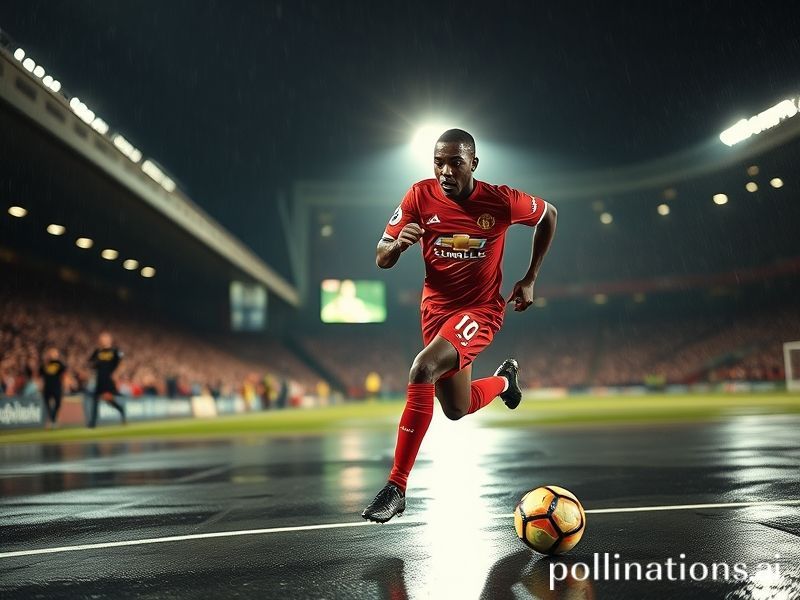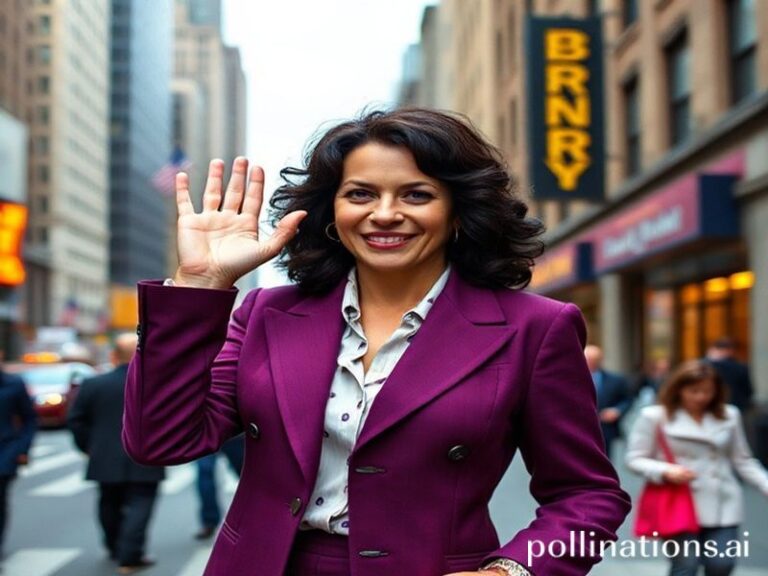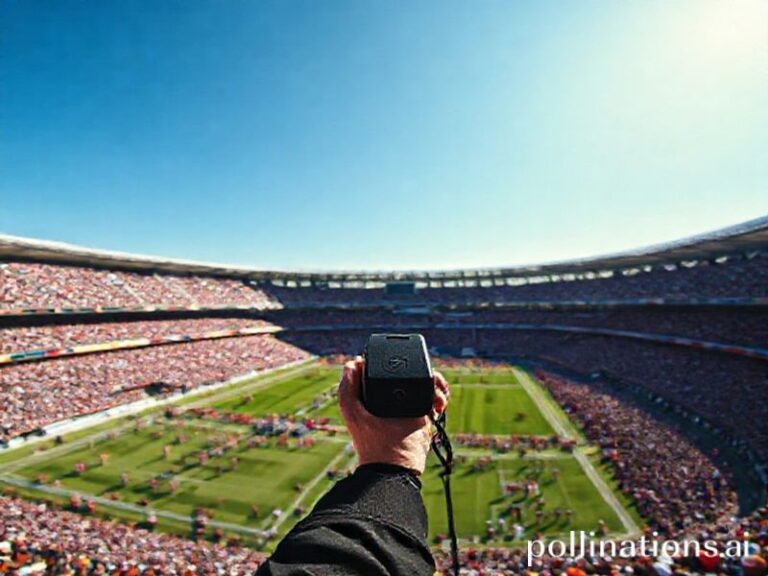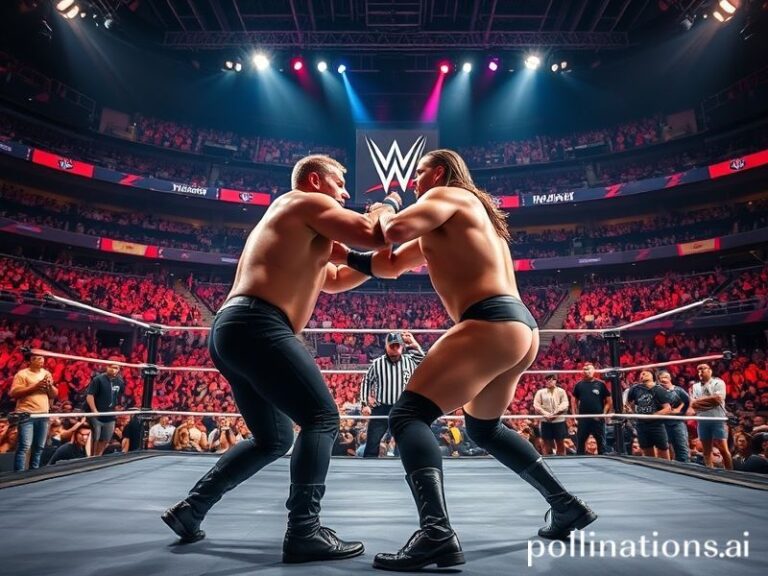Anthony Martial: The Global Economy’s Favorite Brooding Frenchman
Anthony Martial: The Last Frenchman Standing Between Your Club and Existential Dread
By Our Man in the Transfer Tavern (and Everywhere Else)
There are moments—usually around the 73rd minute when the score is 0-0 and the floodlights look like interrogation lamps—when Anthony Martial appears to lose interest in the entire human project. He drifts left, drifts right, drifts metaphysically, as if auditioning for a Godard film instead of a Champions League quarter-final. This, dear reader, is the point where global capital winces. From Singapore sovereign-wealth funds to a pub syndicate in Montevideo staking next month’s rent on over 2.5 goals, the planet’s assorted gamblers suddenly remember that the French striker’s mood is a tradable commodity listed somewhere between lithium futures and South Korean snack stocks.
Martial’s career has long been a Rorschach test for whatever you already believe about the 21st century. Optimists see a boy plucked from the Paris banlieues who briefly terrified the Premier League and still has time to terrify Ligue 1 again. Pessimists see a walking reminder that even €60 million can’t buy sustained serotonin. Realists—those rare beasts—see a perfectly serviceable forward whose real value lies in keeping the rumor mill grinding so that newspapers from Lagos to La Paz can recycle the same grainy training-ground photo every January. Without him, half the planet’s back-page designers would have to confront the void.
Consider the geopolitical ripple effects. When Martial’s agent last whispered “Juventus” into a well-placed ear, the euro ticked 0.0004% higher against the yen. Analysts blamed inflation expectations; we prefer to blame the agent’s cologne. Meanwhile, United’s share price on the New York Stock Exchange quivers like a tuning fork whenever he’s left out of the squad. Somewhere in Delaware, an algorithm has learned to short Disney stock the moment Martial posts a cryptic emoji. Capitalism has always been irrational; now it’s irrationally French.
Over in Asia, where the Premier League’s broadcast rights cost more than some defense budgets, Martial is a paradox: simultaneously a Nike billboard and a cautionary tale about wasted talent. Chinese streaming platforms dub his languid body language as “effortless elegance,” which is Mandarin for “lazy but marketable.” In Jakarta, teenage forwards imitate his slouched shoulders and sudden bursts of acceleration, thereby sustaining the local physiotherapy industry. Every pulled hamstring is a micro-economic stimulus.
Africa, too, keeps watch. Martial’s Guadeloupean roots make him an honorary cousin from Dakar to Douala. When he scores, WhatsApp groups from Abidjan to Accra explode with frog-leg GIFs; when he sulks, the same groups counsel patience in the tone normally reserved for disappointing nephews. Across the continent, young talents interpret his stagnation as proof that Europe is less a finishing school than a casino with better grass.
Back in Europe, the continental press treats him like a minor treaty clause: occasionally vital, mostly forgotten. L’Équipe runs bi-annual “Martial, fin ou renaissance?” spreads that recycle the same quotes from Thierry Henry about “unlocking his potential,” a phrase now so worn it could be sold as vintage denim. In Madrid, Marca keeps a candle lit just in case Florentino Pérez decides the club needs another French attacker to misplace on the bench. And in Manchester itself, locals debate whether his name is pronounced Mar-shall or Mar-see-all, a theological dispute that has ended marriages.
All of which brings us to the present transfer window—if “window” still describes the gaping hole through which hope and television money flow in opposite directions. Saudi Pro League emissaries hover, promising tax-free wages and an air-conditioned existential crisis. MLS franchisees in St. Louis or Austin dream of a marquee name who once terrorized defenses and still looks good in slow-motion drone shots. Meanwhile, Marseille fans light candles to the spirit of Jean-Paul Sartre, praying for a prodigal homecoming that would let them chant “Martial, enfin!” right before he pulls up with a calf strain.
In the end, Anthony Martial remains what he has always been: a mirror. Gaze into it and you see globalized sport’s triumphs and follies—obscene wages, fragile psyches, and a planet that can’t decide whether it wants athletes to be artists, accountants, or avatars. Whatever happens next—renewal, retirement, or a lucrative cameo in the Gulf—his next shrug will move markets, ruin weekends, and give us all something to argue about until the next distraction dribbles into view. The game, like life, will go on. Probably without him. Possibly without us.







